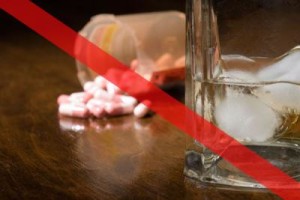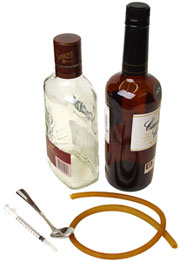The short and not-so-sweet answer to the question “is it okay to mix alcohol and sleeping pills?” is: no, it is not ok to mix the two; it is quite dangerous and potentially fatal. Alcohol increases the effects of the sleeping pill, causing a series of symptoms that can lead to death.
Death Can Occur When You Mix Alcohol and Sleeping Pills
Mixing alcohol and sleeping pills can be extremely dangerous. The combination increases the sedative effect of sleep medication is a sedative and when you add alcohol to the mix it can be fatal. In fact, sleeping pill labels warn against using alcohol while taking the drug. This is because this is and has been a well-known interaction that leads to tragedy.
What Happens When You Mix Alcohol and Sleeping Pills
Sleeping pills depress the central nervous system and adding alcohol to the mix only serves to increase that effect, according to the National Institute on Alcohol Abuse and Alcoholism (NIAAA). So, if you are taking any over-the-counter or prescription medications, speak with your doctor or pharmacist about the risks of drinking alcohol in combination with your medication.
Because alcohol and sleeping pills are depressants, when they are taken together, they cause your body to relax more than it really should. This means that your breathing slows drastically and therefore less oxygen gets to your blood cells and then your blood pressure drops. Your breathing slows down too much or even stops, which can cause you to go into a coma and suffer serious brain damage.
Statistics on When You Mix Alcohol and Sleeping Pills
In 1983, The Archives of Internal Medicine study looked at 50 million death certificates to determine why 92 people died at home from the combination of medications and alcohol. By the last year of the study in 2004, that number had grown to 3,792, an increase of nearly 3,200%.
According to the NIAAA, more than 150 medications do not mix with alcohol. These drug interactions may result in increased risk of illness, injury and death.
The number of Americans who have died in their home after combining prescription and over-the-counter medications with alcohol has risen more than 3,000% over the twenty years, according to a study published in the Archives of Internal Medicine.
Why People Mix Alcohol and Sleeping Pills
People are often not aware of the dangers when mixing alcohol with sleeping aids. Just like any physical ailment, not being able to sleep can be upsetting and even painful and so people want to stop that pain. People often resort to alcohol for its calming effect.
Also, over the course of time that you are not getting good, restful sleep, your ability to think straight diminishes and your thought process might not be the clearest. So you won’t take the time to carefully read medication labels and, if you do, you may not process the information properly. The same goes for when you are given instructions by your doctor, if it is a prescribed sleep aid. Information just does get processed clearly when you haven’t slept and can’t think straight. You are more likely to make poor decisions, like mix alcohol and sleeping pills when you haven’t been getting enough sleep.
Sources:



